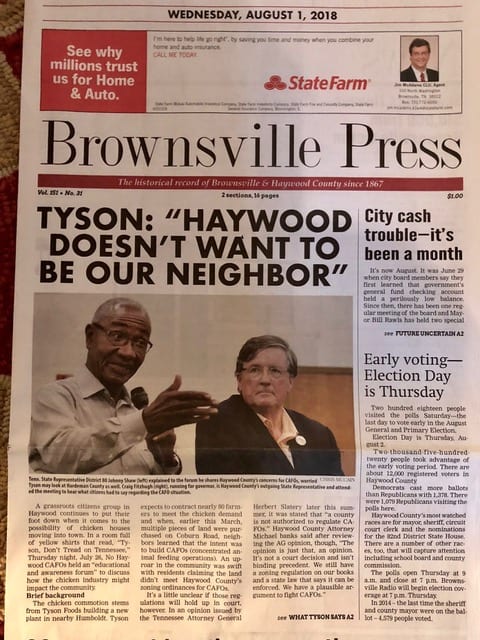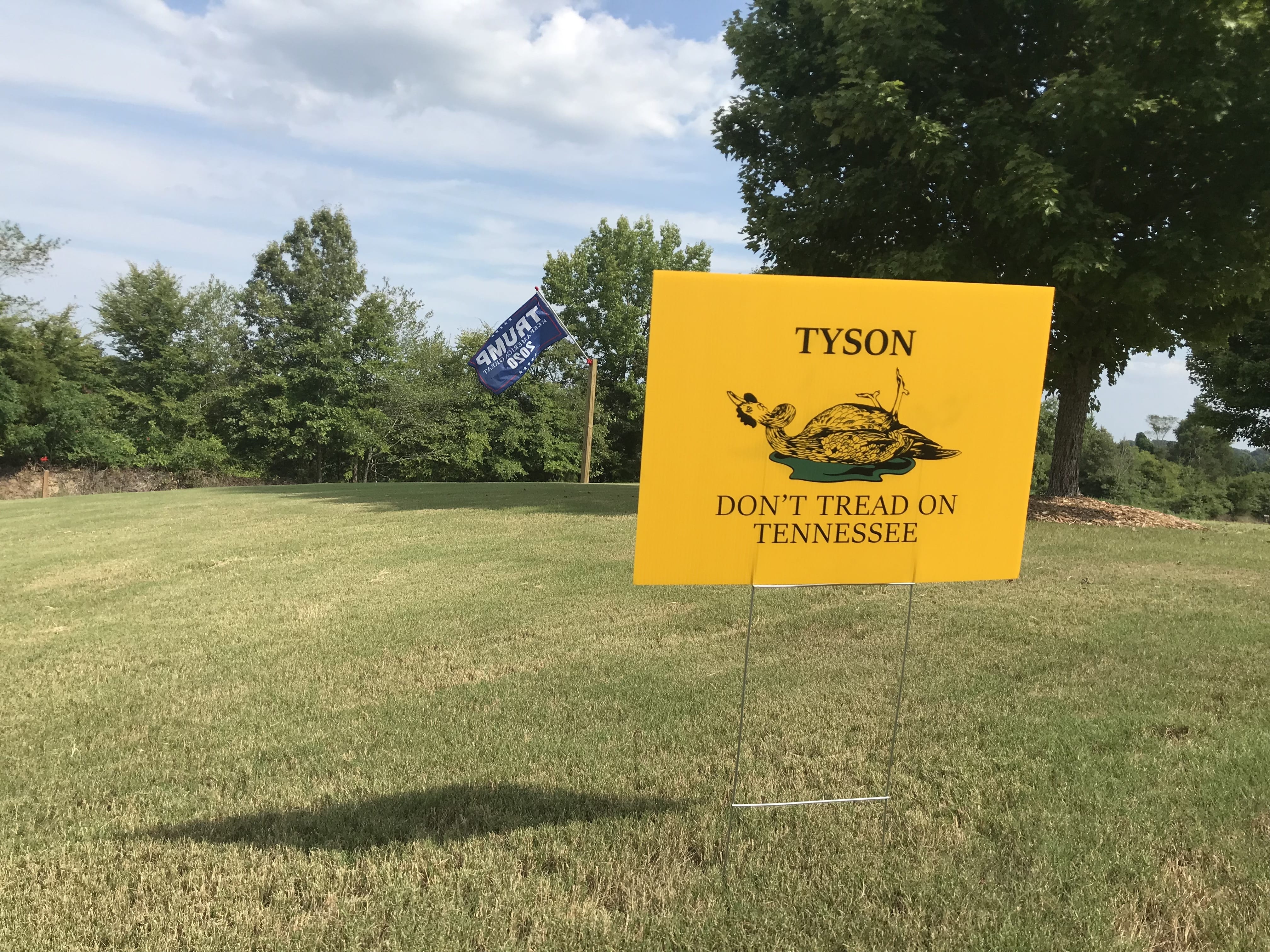
In a hot world, companies may be the last, best hope

In a Hot World, Companies May Be The Last, Best Hope
From: Glenn Hurowitz, Mighty Earth CEO |Re: Mighty Earth Update| October 8, 2018
The world’s leading scientific climate change body, the IPCC, today released a report showing that there is even more urgency to addressing climate change than the world’s scientists had previously thought: that the world must cut pollution by 45 percent by 2030, and reach net zero pollution fifteen years after that. It’s the difference between having some coral reefs survive and virtually none at all; of agriculture surviving across vast swathes of the Earth, or mass wildlife and desertification; the world’s plants would have double a chance of holding onto more than half their habitat; and even oceans would lose 1.5 million tons of their fish. The report makes clear in its sober language that these are life and death questions.
At the same time that the rising heat demands the actions of our whole societies, many governments are turning their back on the environment. The United States official take on climate change is now that it’s so bad that’s there no chance of stopping it, so we might as well just burn as many fossil fuels as possible. Brazil seems poised to elect a leader who has vowed to join Trump in rejecting the Paris climate accord, putting the country’s forests and agricultural viability at risk. And even countries like Japan, which formerly led the way toward action, are subsidizing the burning of coal and palm oil at home and around the world. While other governments such as China and Europe have redoubled their commitments to action, this is a global problem, and they alone won’t be sufficient.
But although the media focuses on the primary role of government, let us not forget that for the most part it is not governments that do the polluting or deforesting, but companies. Just because governments aren’t doing their job, doesn’t mean the job can’t be done. Indeed, some of the world’s greatest environmental successes have been achieved by companies acting either from their own sense of responsibility, or spurred by customers, investors, and society more broadly – often in ways that end up changing government. The big soy traders have for 10 years protected part of the Amazon when their customers demanded they do so; companies like Apple, Facebook, Google and Amazon have shifted to 100% clean energy; 274 coal plants in the United States have been slated for retirement or stopped by Sierra Club’s Beyond Coal campaign; investors representing $6 trillion have committed to divest from fossil fuels; and previously notorious paper companies protected millions of acres of Canada’s forests.
No matter how far into a wonderland of suicidal auto-delusion governments descend, companies retain the power to act. But there is no excuse for private sector lack of urgency, nor backstop if it fails. We have a dozen years. That means companies like Cargill have to get serious and jettison their absurd 2030 deadline for ending deforestation, and industries like steel, cement, oil, and chemicals that have previously taken few steps to reduce their emissions must get started today on the shift to 100% clean energy and carbon neutrality.
How We’re Driving Company Action Even in Red States

Here’s why we know it’s possible. We’re seeing citizens pour out to demand that companies stop polluting even in the “reddest” parts of the United States. Our campaign to transform the US meat industry to stop pollution and destruction of native ecosystems has struck a chord across the political spectrum. In Haywood County, Tennessee, we helped turn dozens ofpeople out to town meetings to object to Tyson’s expansion plans, many of them wearing “Tyson: Don’t Tread on Tennessee” t-shirts. In response to citizens’ outcry, a frontpage story in the area newspaper reported that Tyson is pulling the plug on its meat factory plans – a major victory. We will continue working with communities in Tennessee to ensure Tyson sticks to its commitment.
In the days following the decision, two local volunteers who’ve been working with Mighty Earth were elected to public office on promises to fight concentrated animal feeding operations (CAFOs) – one became County Mayor, and the other was elected to the County Commission that oversees zoning.

All of our volunteers will be releasing our new Flunking the Planet report about how most major supermarkets and fast food restaurants – including ones that brand themselves as sustainability leaders like Whole Foods – have zero environmental policies in place for the meat they purchase – even though meat is typically by far the greatest driver of environmental impact of any product they sell. Indeed, Whole Foods purchases meat from many of the same sources as McDonald’s, including notorious polluters Tyson Foods and Cargill. Interestingly, the only exception was Wal-mart, which has taken important but modest steps to improve practices for how animal feed is grown and reduce greenhouse gas emissions.
A world away in Bolivia, citizens and politicians alike are acting to demand that international companies like Cargill and ADM stop exploiting their natural resources and people. On behalf of more than 100 Bolivian civil society organizations, indigenous organizations, and other representatives, 18 Members of Bolivia’s national and state legislatures and mayors to the world’s leading meat companies asking them to stop companies like Cargill from destroying Bolivia’s forests, and instead focus development on Bolivia’s 11 million acres of degraded lands.
 Finally, I’m excited to announce that two impressive advocates are joining our forests team to help us persuade companies and governments to bring the needed urgency to this work. Mat Jacobson is our new Senior Forest Director, and will oversee our forest programs. He comes to Mighty Earth after almost 20 years in senior positions at the Pew Charitable Trusts and elsewhere. Amongst his many accomplishments, Mat was instrumental in securing the protection of more than 50 million acres of America’s last intact roadless forests under the Clinton administration, helped secure commitments to protect hundreds of millions of acres in the Boreal Forests of Canada, and was instrumental in the integration of Indigenous perspectives on nature into World Heritage policies and guidelines.
Finally, I’m excited to announce that two impressive advocates are joining our forests team to help us persuade companies and governments to bring the needed urgency to this work. Mat Jacobson is our new Senior Forest Director, and will oversee our forest programs. He comes to Mighty Earth after almost 20 years in senior positions at the Pew Charitable Trusts and elsewhere. Amongst his many accomplishments, Mat was instrumental in securing the protection of more than 50 million acres of America’s last intact roadless forests under the Clinton administration, helped secure commitments to protect hundreds of millions of acres in the Boreal Forests of Canada, and was instrumental in the integration of Indigenous perspectives on nature into World Heritage policies and guidelines.
 Abdul Tejan-Cole, a celebrated human rights lawyer and advocate, has joined us as our new Senior Director for Africa. He previously served as the Executive Director of the Open Society Institute’s West Africa Initiative, and as head of Sierra Leone’s anti-corruption commission, where he successfully prosecuted a number of high-level cases in fisheries and maritime issues. He has served as Secretary General, Vice President, and President of the Sierra Leone Bar Association, as well as president of the West Africa Bar Association. Abdul was also a war crimes prosecutor in the Special Court for Sierra Leone, and has been Board Chair of West Africa Democracy Radio and Timap for Justice. Environmental and land rights protection have been a long-time passion for Abdul.
Abdul Tejan-Cole, a celebrated human rights lawyer and advocate, has joined us as our new Senior Director for Africa. He previously served as the Executive Director of the Open Society Institute’s West Africa Initiative, and as head of Sierra Leone’s anti-corruption commission, where he successfully prosecuted a number of high-level cases in fisheries and maritime issues. He has served as Secretary General, Vice President, and President of the Sierra Leone Bar Association, as well as president of the West Africa Bar Association. Abdul was also a war crimes prosecutor in the Special Court for Sierra Leone, and has been Board Chair of West Africa Democracy Radio and Timap for Justice. Environmental and land rights protection have been a long-time passion for Abdul.


